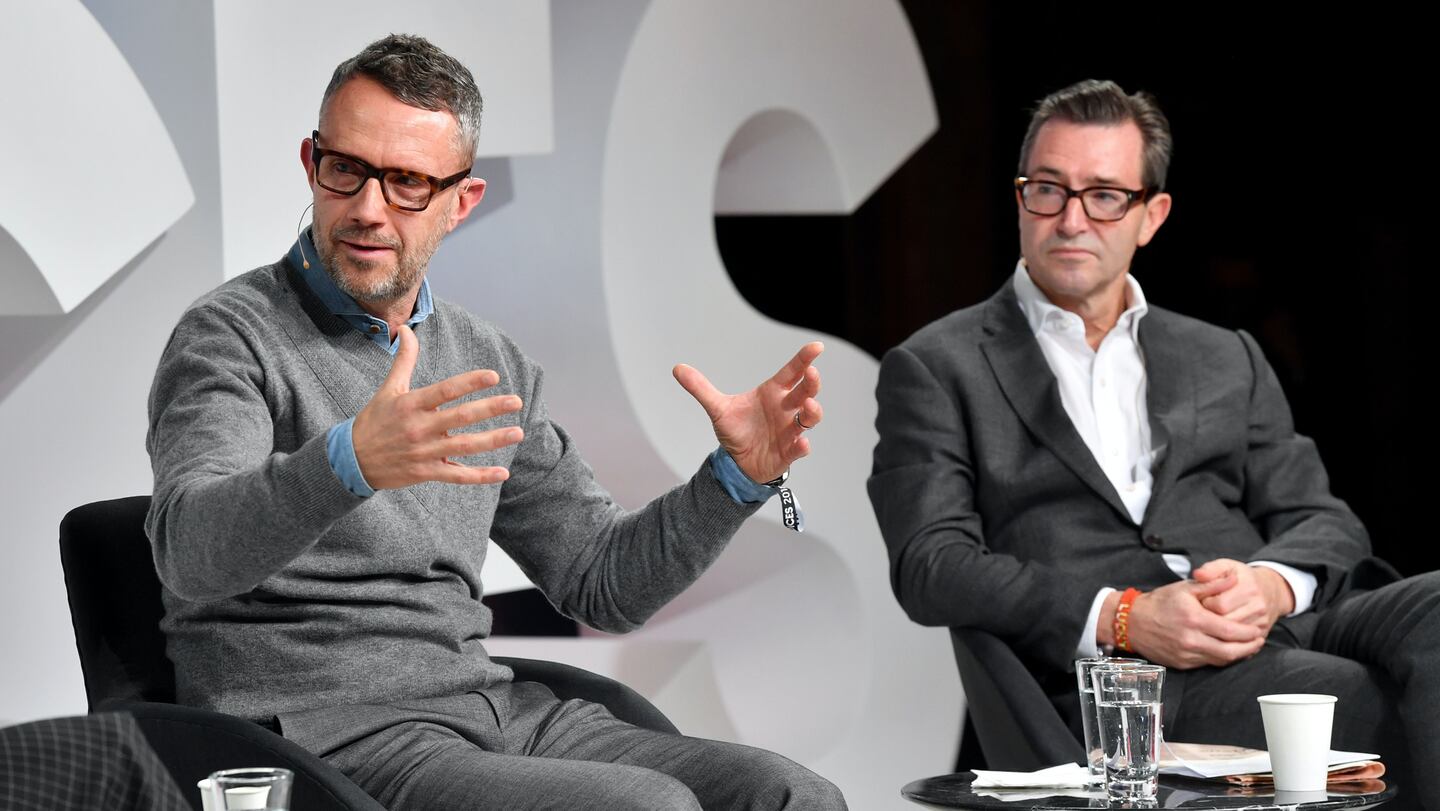
The Business of Fashion
Agenda-setting intelligence, analysis and advice for the global fashion community.

Agenda-setting intelligence, analysis and advice for the global fashion community.

OXFORDSHIRE, United Kingdom — The rise of technology platforms and the decline of advertising revenue have put tremendous pressure on the news media business, but momentum at both the Financial Times and the Guardian newspaper groups prove that readers value quality journalism even more in a world of fake news and political polarisation.
So said Financial Times Group chief executive John Ridding and Guardian Media Group chief executive David Pemsel as they took the stage at VOICES, BoF's annual gathering for big thinkers, for a conversation with BoF's chief correspondent Lauren Sherman.
Three factors — the decline of advertising revenue; the rise of societal discord and political polarisation; and the growing demand for trusted news sources — have created both challenges and opportunities for publishers. “You can’t imagine the contradictions of those three spheres all happening at the same time,” Ridding said.
Both the Financial Times and the Guardian have found success by convincing readers to pay for their content, a strategy that many media brands are trying to adopt in the face of declining ad sales. Looking ahead, both Ridding and Pemsel said audio was the next frontier and a powerful pathway for attracting an audience. “It’s more personal … and I think people appreciate that,” said Ridding. “People want time to reflect and not just be inundated with what’s breaking right now,” added Pemsel.
ADVERTISEMENT
To subscribe to the BoF Podcast, please follow this link.
Subscribe to BoF Professional for unlimited access to BoF articles, plus exclusive benefits for members.
To contact The Business of Fashion with comments, questions, or speaker ideas please e-mail podcast@businessoffashion.com.
For dozens of brands, dressing stars for the Met Gala comes at a significant cost. It’s not always clear how they should measure their return on investment, writes Imran Amed.
The New York Times’ chief fashion critic joins BoF founder and editor-in-chief Imran Amed to share her 2024′s Met Gala.
Despite threats of disruption from protests, the Condé Nast union and TikTok’s legal woes, the event continued as planned with attendees dazzling in bespoke and archival ensembles.
The race to dress fashion’s biggest stars has gotten tighter — and brands are deploying fresh, social media-friendly tactics to generate buzz.